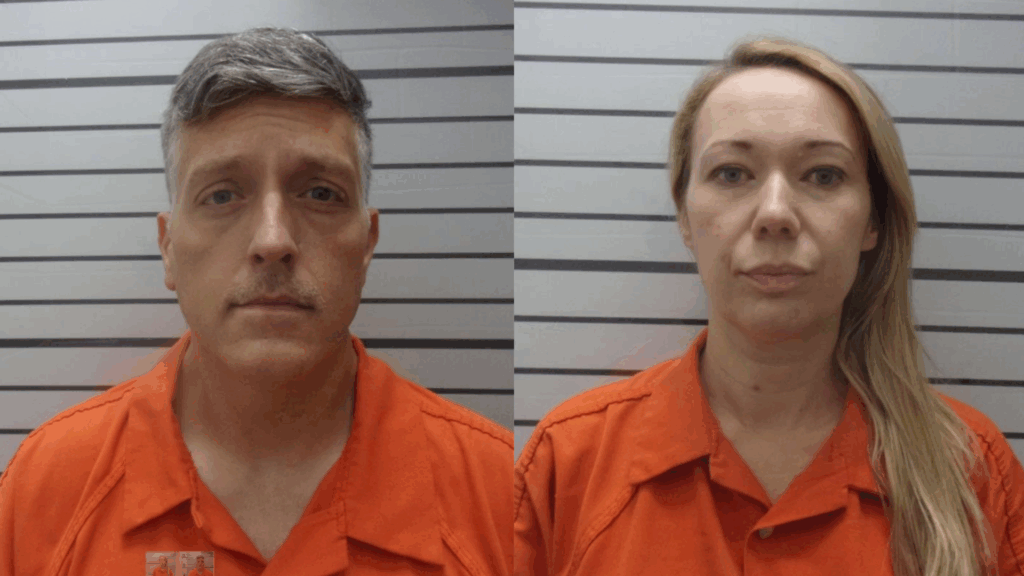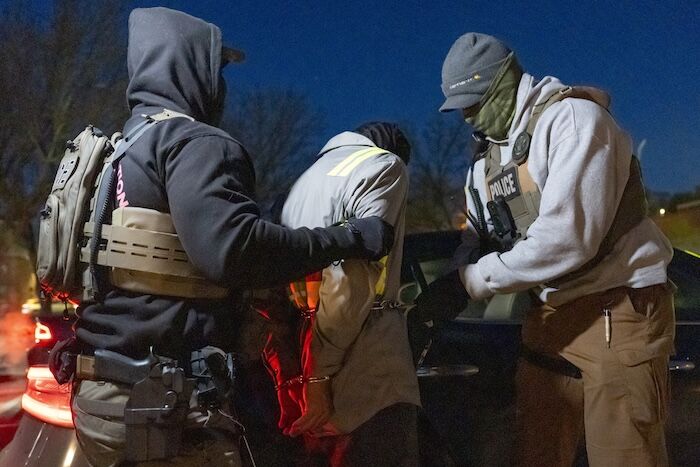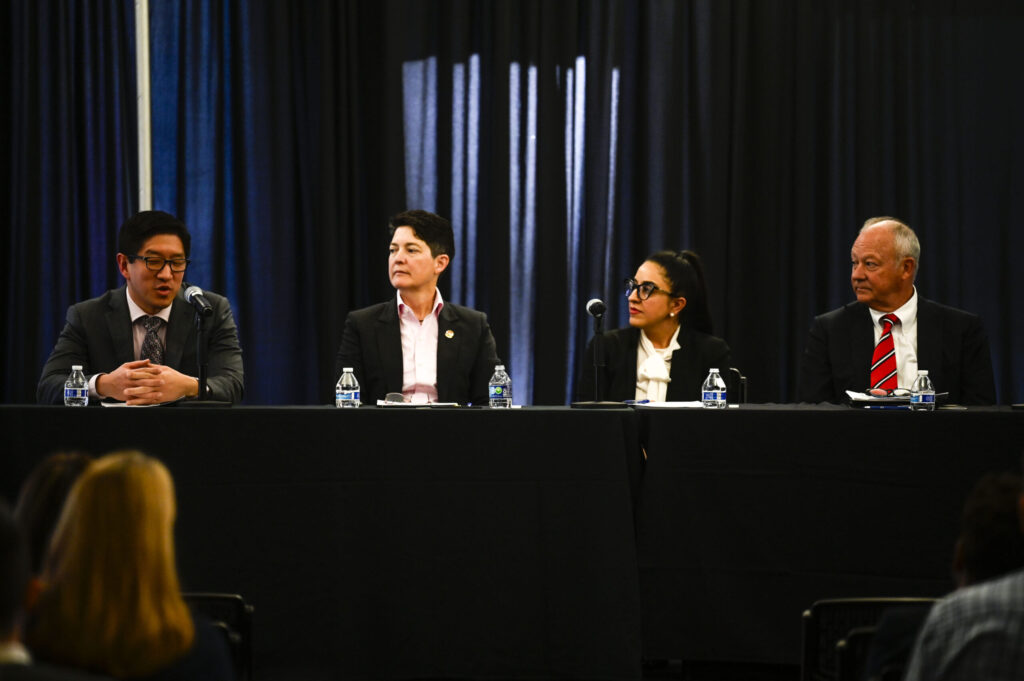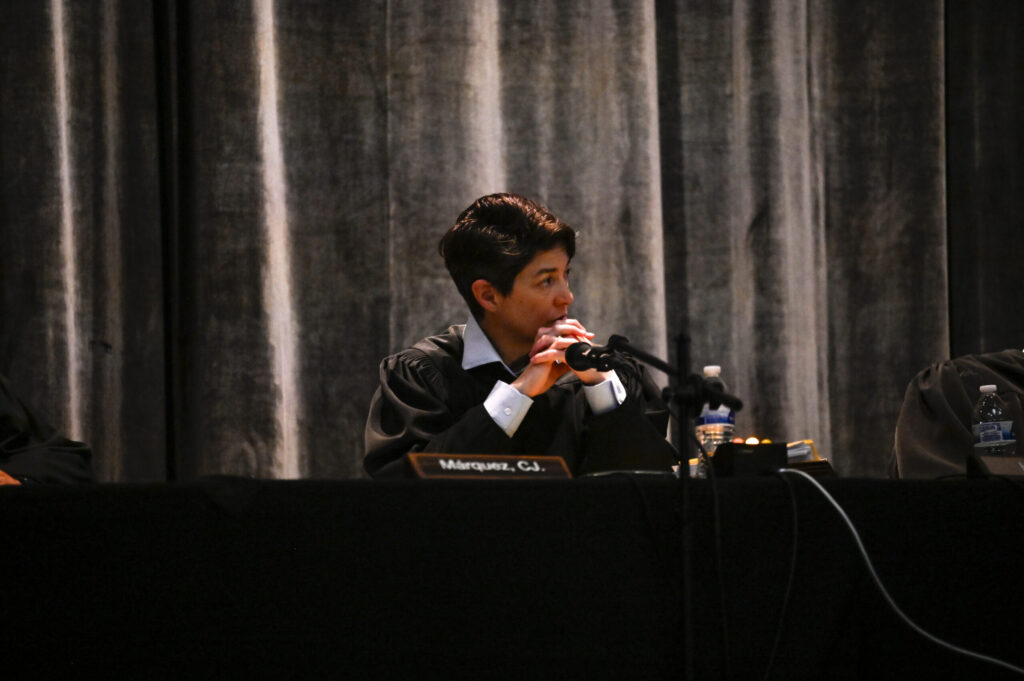Appeals court says Denver judge forced man to choose between right to attorney, speedy trial

Colorado’s second-highest court last week reversed a man’s convictions after finding a Denver judge forced him to choose between postponing his jury trial if he wanted a lawyer or continuing to trial as scheduled, but with no attorney.
Aurelio DeSantiago opted to represent himself and a jury convicted him of multiple assault charges. He received 13 years in prison.
A three-judge panel for the Court of Appeals ruled that DeSantiago’s decision to give up his constitutional right to counsel was not knowing, voluntary or intelligent. He only did so after then-District Court Judge Lisa Teesch-Maguire pressured him to postpone his trial, despite no request for a delay from either side.
“The district court, without sufficient cause for doing so, forced DeSantiago to choose between his statutory right to a speedy trial and his right to counsel,” wrote Judge David H. Yun in the appellate panel’s Feb. 2 opinion.
Prosecutors charged DeSantiago in May 2020 with several domestic-violence related offenses. Due to the COVID-19 pandemic, his trial date was pushed back multiple times. He remained in jail until approximately February 2021, when he was able to post bond.
Because he no longer automatically qualified for representation from the public defender’s office following his release, DeSantiago needed to reapply for legal assistance. DeSantiago attended a court hearing in April, where he indicated he wanted a public defender. At that point, the judge set DeSantiago’s trial for July after instructing him to reapply for public defender representation.
At the next court date, May 17, 2021, DeSantiago still had not applied. Teesch-Maguire was substituting for the regular judge assigned to the case, Eric M. Johnson. A lawyer from the public defender’s office was present and indicated DeSantigo would apply for representation soon.
Instead, Teesch-Maguire told DeSantiago his “speedy trial is running,” a reference to the deadline in state law for the government to bring a defendant to trial. In order to give his defense lawyer more time to prepare, she explained, “I would want you to waive your right to a speedy trial.”
After DeSantiago declined, the judge said, “OK. So then you can proceed by yourself.”
She then began to read the standard advisement given to criminal defendants when they decide to represent themselves. DeSantiago asked why he needed to agree to a trial beyond the legal deadline – which was not for another three months – in order to keep his public defender.
“Because, sir, you had an obligation to apply for the defendant – the public defender’s office months ago. All right? It’s not the (prosecution’s) fault that you have failed to follow through,” Teesch-Maguire told him.
“I am saying that you should absolutely have an attorney,” she continued. “I fully believe that. But it’s also not the government’s fault that you have failed. You’re the reason that you do not have a public defender.”
Teesch-Maguire said she was not going to enforce an “arbitrary” speedy trial deadline because of DeSantiago’s own actions.
“You’re facing a ton of time in prison, sir,” she added. But “you need to be fair to the (prosecution) and let them have enough time to bring you to trial.”
Although neither the prosecution nor the defense indicated they would not have enough time to prepare if DeSantiago applied for a lawyer, DeSantiago agreed he would proceed to trial without one. Teesch-Maguire clarified that if DeSantiago applied for the public defender the next day, “Judge Johnson might reconsider.” Nevertheless, Teesch-Maguire deemed that she had given DeSantiago all of the legally-required warnings to enable him to represent himself.
On appeal, DeSantiago, now represented by the public defender’s office, argued there was no reason for Teesch-Maguire to tell DeSantiago he needed to hold his trial beyond the legal deadline. On the other side, the Colorado Attorney General’s Office insisted there was no forced choice between DeSantiago’s constitutional rights.
“The advisement was not an ultimatum – either waive the right to counsel or waive the right to speedy trial – but a precaution so that the defendant knew what the consequence would be if he did not obtain counsel by his trial date,” wrote Assistant Attorney General Jaycey DeHoyos.
The appellate panel sided with DeSantiago. In order for a defendant to give up their constitutional right to an attorney, it has to be knowing, voluntary and intelligent. The panel found no indication DeSantiago clearly knew about the nature of the charges against him and the allowable punishments. Teesch-Maguire had only told him he was facing “a ton of time in prison.”
“DeSantiago was facing a maximum presumptive sentence of forty-nine and a half years. A ‘ton of time in prison’ does not convey meaningful information about the period of incarceration he faced or a realistic picture of his sentencing exposure such that his decision to proceed could be made with eyes open,” Yun wrote, finding DeSantiago’s waiver was not knowing or intelligent.
Yun added that DeSantiago had also not voluntarily relinquished his right to counsel because Teesch-Maguire made it seem as if he had to choose between that right and his other right to a speedy trial. It did not matter, the panel decided, that DeSantiago also failed to apply for a public defender after Teesch-Maguire claimed his regular trial judge might allow DeSantiago to have a lawyer after all.
“With such ambiguous language,” Yun wrote, “and having already been forced into a choice between the right to counsel and the statutory right to a speedy trial, it is no wonder that DeSantiago did not pursue the mere possibility that another judge ‘might’ ‘potentially’ reconsider this judge’s decision.”
The panel ordered a new trial for DeSantiago. It did not address his other argument on appeal, that Johnson, who presided over the jury trial, committed an error when he instructed jurors that reasonable doubt “is what the jury says it is.”
Judge Jerry N. Jones authored a one-sentence concurring opinion. He agreed DeSantiago did not knowingly or intelligently waive his right to counsel, but Jones did not join the part of Yun’s opinion finding the waiver was also involuntary.
The case is People v. DeSantiago.














